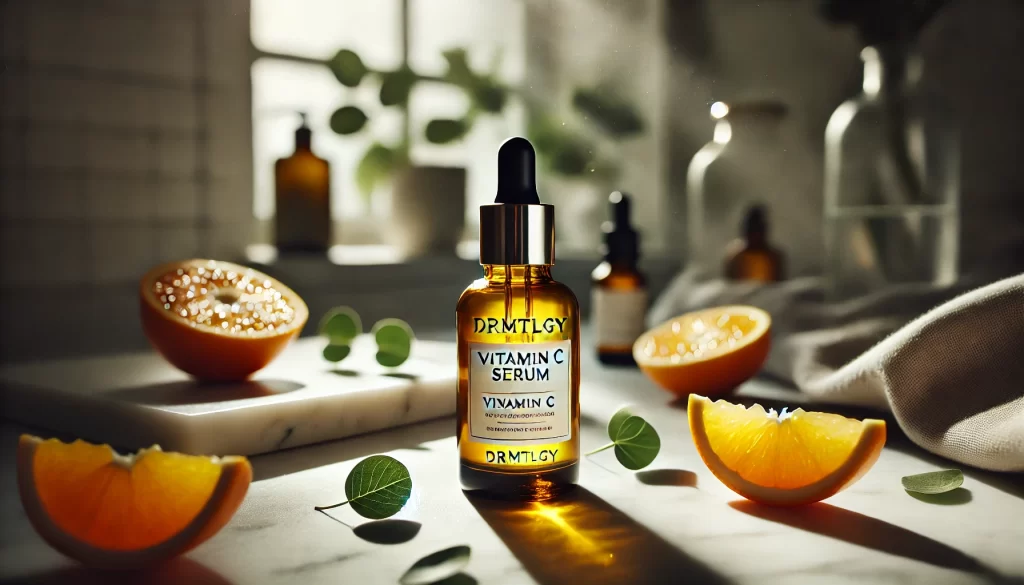Vitamin C is more than just a buzzword in skincare—it’s one of the most powerful, science-backed ingredients for maintaining radiant, youthful, and healthy skin. Also known as ascorbic acid, vitamin C has been studied extensively for its protective effects against skin aging and its role in promoting collagen production. In this in-depth article, we’ll explore how vitamin C benefits your skin, the best ways to use it, and how to choose the right product to see visible, lasting results.
The Role of Vitamin C in Preventing Premature Skin Aging
Your skin faces daily exposure to environmental stressors—UV rays, pollution, and free radicals—that accelerate the aging process. Vitamin C works as a powerful antioxidant, neutralizing free radicals and preventing oxidative stress that breaks down collagen and causes wrinkles, fine lines, and skin sagging.
Research shows that topical vitamin C application supports the skin’s natural regeneration process. It plays a crucial role in the synthesis of collagen—a protein responsible for skin firmness and elasticity. Regular use of vitamin C can visibly reduce signs of aging and give your skin a more lifted, youthful appearance.
How to Use Vitamin C for Maximum Skin Benefits
To maximize the effects of vitamin C, it’s important to use it consistently and correctly. Dermatologists recommend applying a vitamin C serum in the morning, right after cleansing and before sunscreen. This morning routine helps boost your skin’s defense against harmful UV rays and environmental aggressors.
The ideal concentration of vitamin C in skincare products ranges from 10% to 20%. Products with less than 10% may not deliver visible results, while concentrations over 20% can irritate sensitive skin without offering additional benefits. Always perform a patch test before introducing any active ingredient to your routine.
Types of Vitamin C in Skincare Products
Not all vitamin C is created equal. The most potent and commonly used form is L-ascorbic acid, which offers the highest antioxidant activity but is also the most unstable. It oxidizes quickly when exposed to light or air, which is why packaging and formulation are key.
For those with sensitive skin or concerns about product stability, derivatives of vitamin C can be a better option. These include:
- Magnesium Ascorbyl Phosphate
- Ascorbyl Palmitate
- Sodium Ascorbyl Phosphate
These forms are more stable and less likely to cause irritation, although they may not be as effective or fast-acting as pure L-ascorbic acid.
Powerful Combinations with Vitamin C
Combining vitamin C with other active ingredients can significantly enhance its effectiveness. Some of the best pairings include:
- Vitamin E: Enhances antioxidant protection and improves skin hydration.
- Ferulic Acid: Stabilizes vitamin C and boosts photoprotection against UV-induced skin damage.
Scientific studies support the idea that vitamin C, when paired with vitamin E and ferulic acid, offers a synergistic effect that dramatically improves skin brightness, evenness of tone, and overall protection.
Recommended Product with Vitamin C
One product that expertly combines these ingredients is DRMTLGY Vitamin CE + F Renew. This serum contains:
- 15% pure vitamin C (L-ascorbic acid)
- 1% vitamin E
- 0.5% ferulic acid
Its lightweight, fast-absorbing formula makes it a great choice for daily use. With consistent application, users often report visible improvements in skin firmness, brightness, and a noticeable reduction in fine lines and hyperpigmentation.
Visible Results Backed by Science
Consistent use of vitamin C can deliver visible results within a few weeks. Most users notice:
- Brighter, more luminous skin
- Improved skin texture and smoothness
- Reduction in dark spots and discoloration
- Firmer, plumper appearance
These benefits are not just anecdotal—clinical studies confirm that regular use of vitamin C serums can help restore youthful skin and maintain long-term health.
How to Store and Care for Your Vitamin C Products
To ensure your vitamin C product stays potent and effective:
- Store in a cool, dark place
- Keep the bottle tightly closed
- Choose air-tight, tinted packaging whenever possible
A change in color (typically turning brown) indicates oxidation and reduced efficacy. Always follow manufacturer instructions for best practices.
Is Vitamin C Right for Your Skin Type?
Vitamin C is generally suitable for all skin types, but some may experience sensitivity, especially when using L-ascorbic acid at high concentrations. If you have dry or sensitive skin, consider starting with a lower concentration or a derivative form.
Pairing vitamin C with a good moisturizer and hydrating ingredients like hyaluronic acid can help minimize irritation and enhance results.

The Bottom Line: Why Vitamin C Deserves a Place in Your Routine
There’s a reason why dermatologists and skincare professionals consistently recommend vitamin C. It’s one of the most researched and effective ingredients for protecting the skin from environmental damage, improving overall skin tone, and reducing visible signs of aging.
By incorporating a high-quality vitamin C serum like DRMTLGY Vitamin CE + F Renew into your morning skincare routine, you’re investing in your skin’s long-term health and beauty. Subtle but powerful, this product offers an ideal blend of vitamin C, vitamin E, and ferulic acid, delivering maximum benefits in one step.
Whether you’re dealing with early signs of aging or simply want to maintain healthy, radiant skin, vitamin C is your go-to antioxidant. Prioritize it in your skincare arsenal—and let your natural glow shine.
Frequently Asked Questions About Vitamin C for Skin
1. What does vitamin C do for your skin?
Vitamin C helps protect the skin from environmental damage, brightens the complexion, reduces fine lines and wrinkles, and supports collagen production for firmer, more youthful skin.
2. Is it safe to use vitamin C on your face every day?
Yes, daily use of a well-formulated vitamin C serum is safe and recommended. Applying it in the morning can enhance protection against UV rays and pollution when combined with sunscreen.
3. What’s the best form of vitamin C for skincare?
L-ascorbic acid is the most effective form of vitamin C, known for its potency in reducing signs of aging. However, for sensitive skin, more stable derivatives like magnesium ascorbyl phosphate can be a gentler alternative.
4. Can vitamin C cause skin irritation?
Some people may experience mild irritation, especially when using high concentrations or applying it on broken skin. Start with a lower concentration if you have sensitive skin and always follow with a moisturizer.
5. How long does it take to see results from vitamin C?
Most users begin to see visible improvements in skin brightness and texture within 2 to 4 weeks of consistent use. Long-term benefits include reduced wrinkles and more even skin tone.
6. Can I use vitamin C with other active ingredients?
Absolutely. Vitamin C pairs well with vitamin E, ferulic acid, and hyaluronic acid. These combinations can boost antioxidant protection and improve hydration and skin firmness.
7. What’s a trusted product that contains vitamin C?
One highly-rated option is the DRMTLGY Vitamin CE + F Renew Serum, which blends 15% vitamin C with vitamin E and ferulic acid for maximum results in anti-aging and skin protection.

At Best and Beyond Spa, Day and Davilla are dedicated professionals passionate about wellness and beauty. With expertise in spa day treatments, couples massages, and senior wellness, they provide high-quality, personalized care in a relaxing environment. Their mission is to help clients feel rejuvenated, refreshed, and truly cared for.







